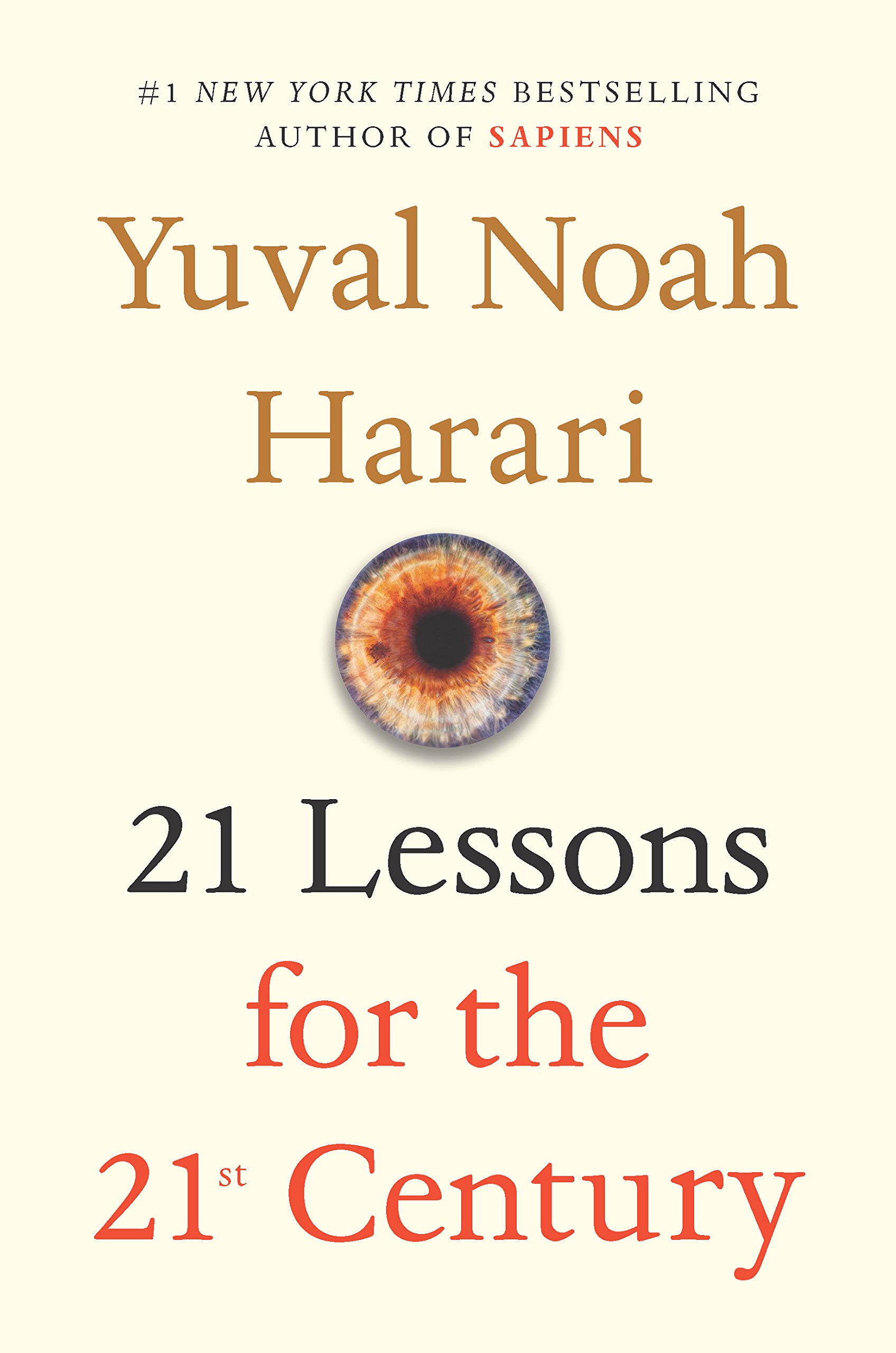Noisy Deadlines a publié une critique de 21 Lessons for the 21st Century par Yuval Noah Harari
Review of '21 Lessons for the 21st Century' on 'Storygraph'
5 étoiles
As always, full of interesting insights. We are doomed!

372 pages
Langue : English
Publié 20 septembre 2018 par Spiegel & Grau.
In Sapiens, he explored our past. In Homo Deus, he looked to our future. Now, one of the most innovative thinkers on the planet turns to the present to make sense of today's most pressing issues.
How do computers and robots change the meaning of being human? How do we deal with the epidemic of fake news? Are nations and religions still relevant? What should we teach our children?
Yuval Noah Harari's 21 Lessons for the 21st Century is a probing and visionary investigation into today's most urgent issues as we move into the uncharted territory of the future. As technology advances faster than our understanding of it, hacking becomes a tactic of war, and the world feels more polarized than ever, Harari addresses the challenge of navigating life in the face of constant and disorienting change and raises the important questions we need to ask ourselves in order to …
In Sapiens, he explored our past. In Homo Deus, he looked to our future. Now, one of the most innovative thinkers on the planet turns to the present to make sense of today's most pressing issues.
How do computers and robots change the meaning of being human? How do we deal with the epidemic of fake news? Are nations and religions still relevant? What should we teach our children?
Yuval Noah Harari's 21 Lessons for the 21st Century is a probing and visionary investigation into today's most urgent issues as we move into the uncharted territory of the future. As technology advances faster than our understanding of it, hacking becomes a tactic of war, and the world feels more polarized than ever, Harari addresses the challenge of navigating life in the face of constant and disorienting change and raises the important questions we need to ask ourselves in order to survive.
In twenty-one accessible chapters that are both provocative and profound, Harari builds on the ideas explored in his previous books, untangling political, technological, social, and existential issues and offering advice on how to prepare for a very different future from the world we now live in: How can we retain freedom of choice when Big Data is watching us? What will the future workforce look like, and how should we ready ourselves for it? How should we deal with the threat of terrorism? Why is liberal democracy in crisis?
Harari's unique ability to make sense of where we have come from and where we are going has captured the imaginations of millions of readers. Here he invites us to consider values, meaning, and personal engagement in a world full of noise and uncertainty. When we are deluged with irrelevant information, clarity is power. Presenting complex contemporary challenges clearly and accessibly, 21 Lessons for the 21st Century is essential reading.
As always, full of interesting insights. We are doomed!
I cannot understand the hype about Harari. As the old saying goes: the book is both good and original. Sadly, the good bits aren't original and the original parts aren't any good.
I have now read all three of Harari's books. And I found this to be the most interesting and infuriating. My biggest critique remains the same across all three books - he can see nuance in the places that are convenient (i.e., economy, technology) and simplicity in the places that are inconvenient to his arguments (i.e., religion). I think the kind of work Harari has done in illuminating big history and getting people to think deeply about global trends is commendable. I only hope that people read this as part of a larger conversation and not an entire worldview perfectly prepackaged. One should use his writings as a springboard for their own inquiries and analysis.
Note - I read this book a number of months ago and currently do not have the book in front of me for this review. I will update the review when I have a chance …
I have now read all three of Harari's books. And I found this to be the most interesting and infuriating. My biggest critique remains the same across all three books - he can see nuance in the places that are convenient (i.e., economy, technology) and simplicity in the places that are inconvenient to his arguments (i.e., religion). I think the kind of work Harari has done in illuminating big history and getting people to think deeply about global trends is commendable. I only hope that people read this as part of a larger conversation and not an entire worldview perfectly prepackaged. One should use his writings as a springboard for their own inquiries and analysis.
Note - I read this book a number of months ago and currently do not have the book in front of me for this review. I will update the review when I have a chance to look over the book.
Svårt att hänga med, hänger upp mig på big data algoritmer och annat tekniksnack jag inte begriper innebörden av.